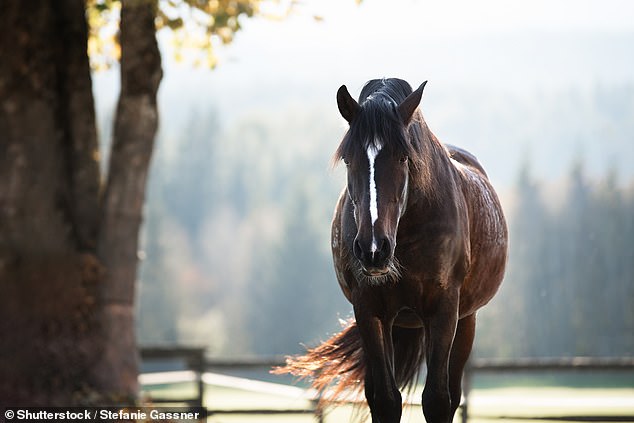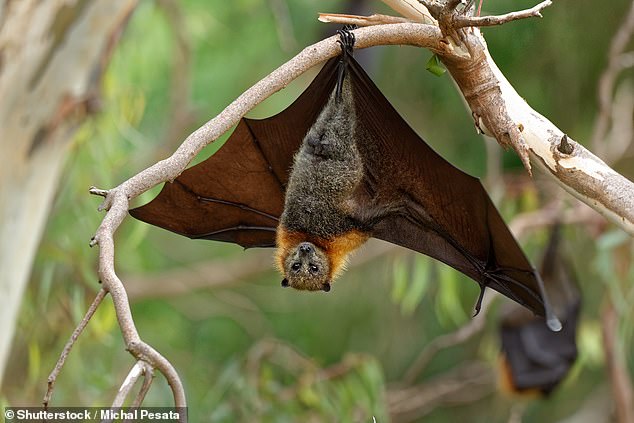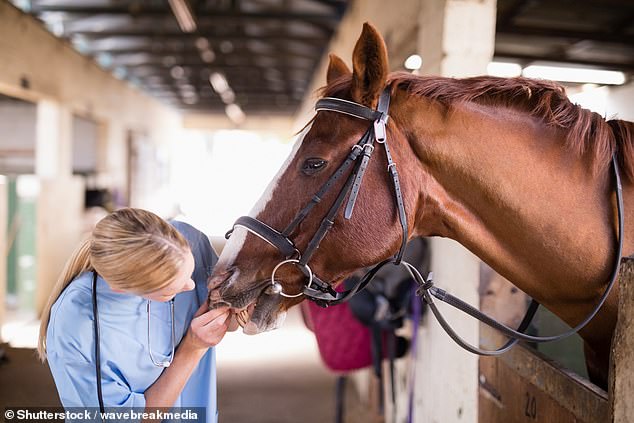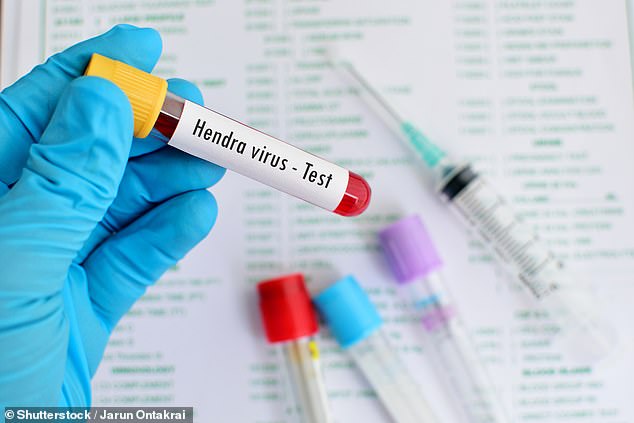
A deadly virus capable of spreading to humans infected a horse for the first time in five years on a Queensland property.
The case of Hendra virus, detected on Friday in Mackay, is the first confirmed case of the infection in horses in the state since 2017.
Hendra is generally contained amongst fruit bat populations.
The virus has killed more than half of the people who have contracted an infection, the majority of whom were vets.
Biosecurity Queensland said they were working on containing the outbreak, having put down the horse and tested other animals on the property.




Horses can spread the Hendra virus to humans, for whom the disease is incredibly dangerous
Chief Veterinary Officer Dr Allison Crook said the horse’s condition rapidly deteriorated after it caught the virus.
‘Tracing and risk assessments have been undertaken on other animals on the property,’ Dr Crook said.
‘We are working with the property and horse owners to ensure the risk is contained on the property.






The deadly Hendra virus can spread from its natural hosts – fruit bats (pictured) – to horses
‘We are also working with Queensland Health’s Public Health experts to determine if any humans had contact with the infected horse and stand ready to provide any assistance, counselling, information, testing or treatment that may be required.’
Dr Crook also revealed the horse hadn’t been vaccinated against the virus.
‘Hendra virus infection can occur throughout the year, so it’s important that horse owners take steps to protect themselves and their animals at all times,’ said Dr Crook.






There are vaccinations for horses to help prevent them from contracting the virus but the infected horse in Mackay wasn’t vaccinated






The last person to die from the Hendra virus was a vet in Rockhampton in 2009. Most of those who have died from the virus were vets
‘If a horse becomes sick, owners should contact their veterinarian immediately.’
The Hendra virus is common within fruit bat or flying-fox communities, with all four mainland species of flying fox considered natural hosts.
Infections amongst flying-foxes cause minimal problems except in the event the infection is transferred to horses.
The virus has a much harsher affect on humans than flying-foxes and people can contract it by handling infected horses.
Humans are considered unlikely to spread the virus between themselves.
The last person to die from the virus was Rockhampton vet Alister Rodgers in 2009.
‘People in contact with horses need to remember to continue to practise good biosecurity and personal hygiene measures even if a horse is vaccinated against Hendra virus,’ said Dr Crook.